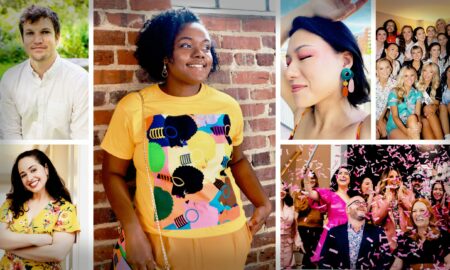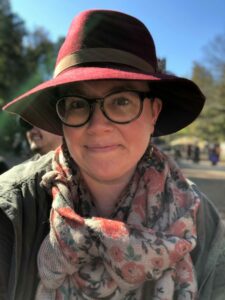 Today we’d like to introduce you to Molly Keener.
Today we’d like to introduce you to Molly Keener.
Hi Molly, thanks for sharing your story with us. To start, maybe you can tell our readers some of your backstory.
I live in Winston-Salem and am a faculty librarian at Wake Forest University, where I’ve been for just over 17 years. To be more precise, I am the Director of Digital Initiatives & Scholarly Communication, which is a big, long, fancy-sounding title that most people don’t understand, so I spend a fair amount of time explaining my job to people! My area of expertise is copyright, academic publishing, and open access, and I head the library department that supports all of that plus research data management, digital scholarship project support, and digital publishing support. I didn’t set out to do this job when I decided to become an academic librarian, nor did I expect to find myself living in the same area where I grew up once I became an adult…and certainly not for this long. But Winston is home, Wake is good, and our family (me, husband, son, 2 dogs, + 1 cat) are happy, so I’m still here!
Alright, so let’s dig a little deeper into the story – has it been an easy path overall, and if not, what were the challenges you’ve had to overcome?
Professionally, I’ve been incredibly fortunate that, ordinary challenges notwithstanding, I’ve had a smooth career. When I decided to go to grad school for library science, my husband and I were prepared to move wherever I got a job. It just so happened that I got a job locally and have had successive jobs in the same institution. Beyond Wake, I’ve benefitted from several serendipitous connections and opportunities over the years that led me to have a far larger presence in my field than I ever thought I wanted, so the need to move to make an impact hasn’t been necessary.
Personally, I have had to reckon with two significant health diagnoses in recent years: Bipolar II and BRCA2+; I jokingly call them my “B2 Blues.” My bipolar II diagnosis came about 6 years ago after several years of unsuccessful treatment for depression and anxiety, which is a common journey for those of us with bipolar II. Because we don’t have the wild mania swings, our hypomania episodes are easily missed by/masked from others, and our depressive episodes are just that – depressive episodes. I’m weirdly grateful that I got prescribed a class of antidepressants that should not be given to people with bipolar disorder because it spikes a manic episode precisely because it sparked a manic episode, and I finally got the right diagnosis. I have a wonderful therapist and psychiatrist who help me maintain stability and manage my mental health so that I can live a successful life. There may be some who are reading this and cringing, thinking I shouldn’t be so open about my mental health struggles, but if we’re ever going to remove the stigma of mental health disorders, those of us who have them need to not hide – this is part of who we are! My other B2 Blue, BRCA2+, is a genetic mutation that puts me a significantly high risk for breast and ovarian cancer and increased risk for pancreatic cancer and melanoma, so you know, some of the ones that are the hardest to screen for and diagnose. This diagnosis came after a family member was diagnosed with cancer at a ridiculously unfair young age. Per medical advice, I had at TLH/BSO (look it up) in my late 30s, hitting the menopause wall full-on upon waking from surgery. I’ll probably have a preventative double mastectomy in the next few years, as I have a really high chance of getting breast cancer, and if I can proactively reduce my chances, I will. As I’ve navigated these personal challenges, I’ve had incredibly supportive family, friends, and colleagues who have cared for me, fed me, covered for me, and helped me not be derailed.
Can you tell our readers more about what you do and what you think sets you apart from others?
One of the best ways I care for myself is through artistic bullet journaling (or bujo, for short). I learned of bullet journaling from a friend who told me about it after witnessing me be paralyzed by indecision when she recommended a book to me. I could not figure out where I should note it: my Goodreads account, my Notes app, written on a piece of paper, somewhere else…? Seriously, it was sad and amusing that I didn’t know where to write down a book recommendation. I’m a librarian, books and order are my profession! Enter bullet journaling. Since I started in 2015, I’ve adapted the basics of Ryder Carroll’s method and made it my own. It’s a godsend for tracking my mood and sleep, which is critical to managing my bipolar. Its flexibility lets me experiment without committing to a single system or layout for a whole year. It’s sparked me to learn hand-lettering and to make my own (non-bujo) journals. I’ve taught bujo workshops for our local indie bookstore, public library, church groups, and several groups at Wake Forest. It can be easy to get overwhelmed looking at others’ bujos, but I use my awe and envy of others’ artistry to fuel my own. I have many friends who are professional artists, and I struggled for years thinking of my bujo as art, but it is, and I’m happy to embrace it as such.
We all have a different way of looking at and defining success. How do you define success?
Success is for yourself. When you’ve worked hard, stand by what you’ve created, and feel satisfaction at the conclusion, that’s success. It’s great when what you’ve done or made is recognized by others, but that doesn’t always happen and shouldn’t be part of the definition.
Contact Info:
- Instagram: @librarianbyday17
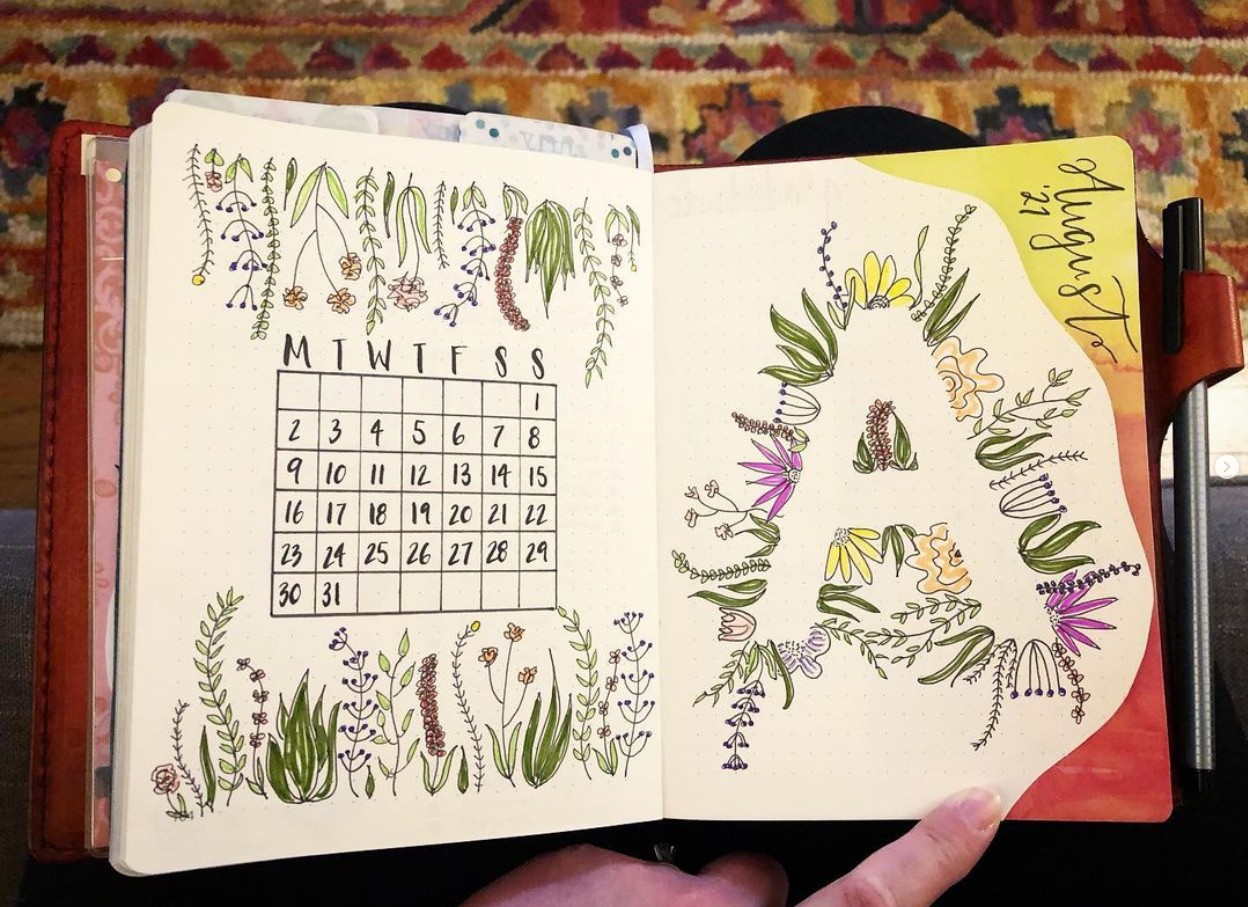
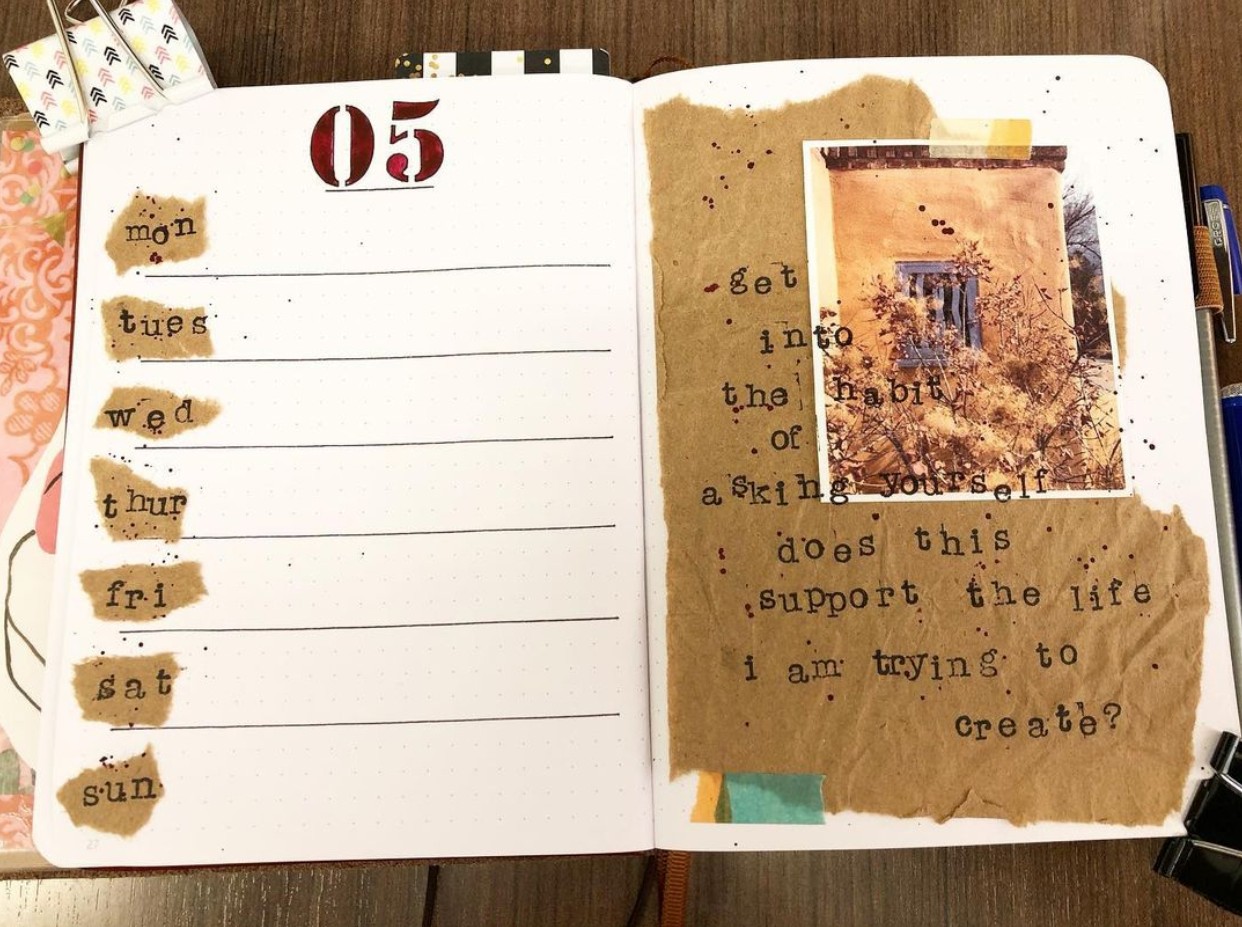
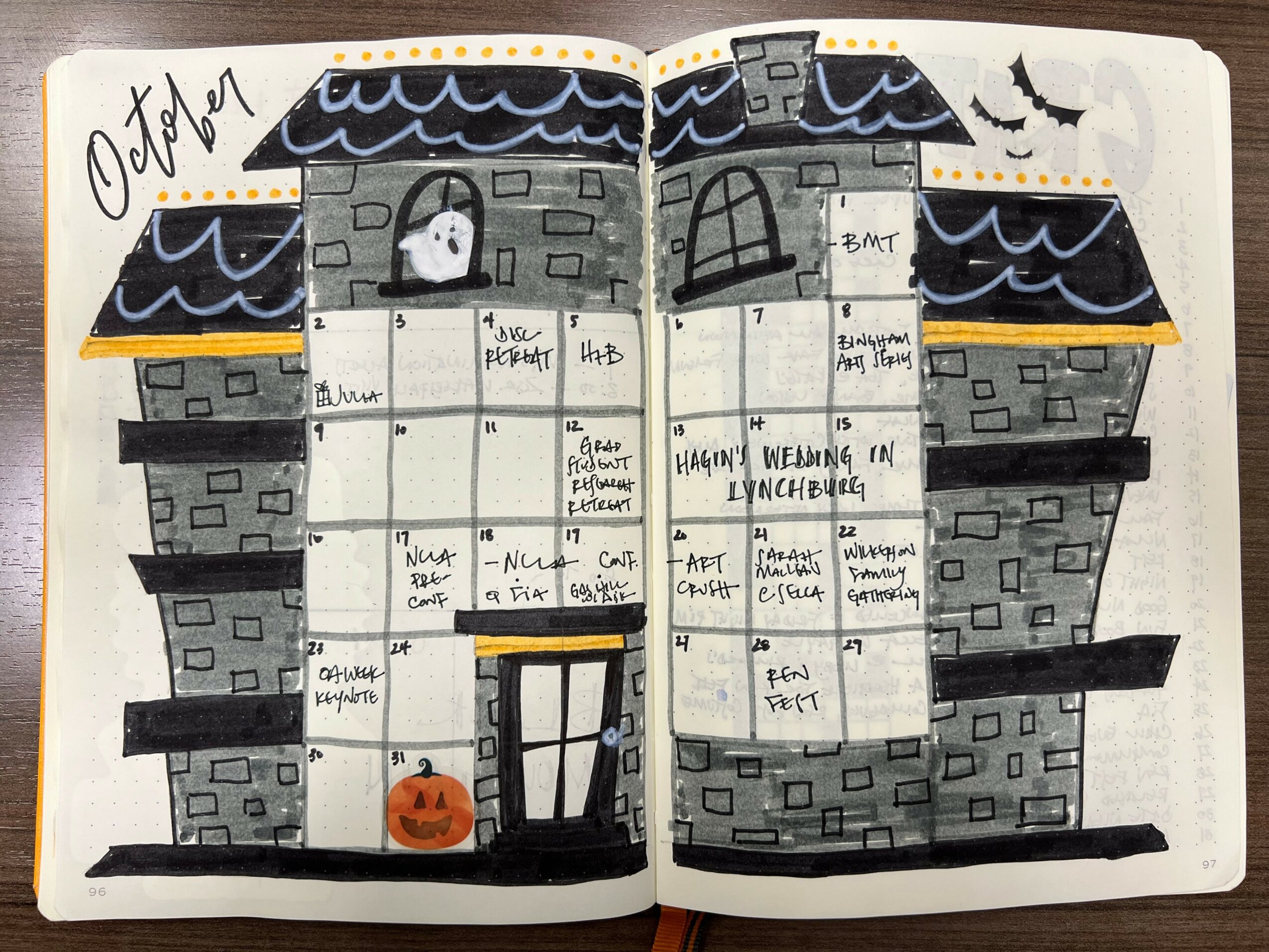
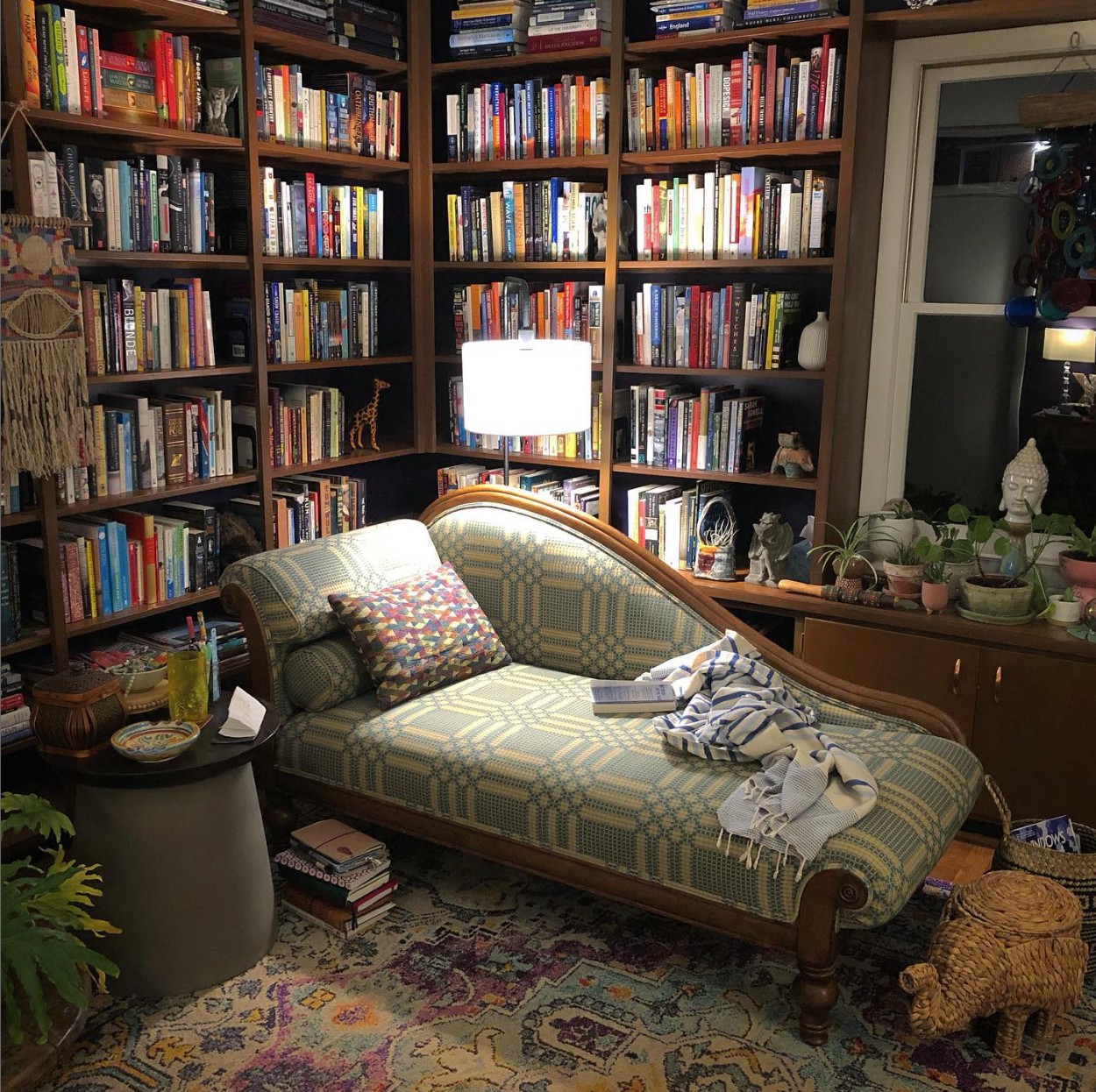
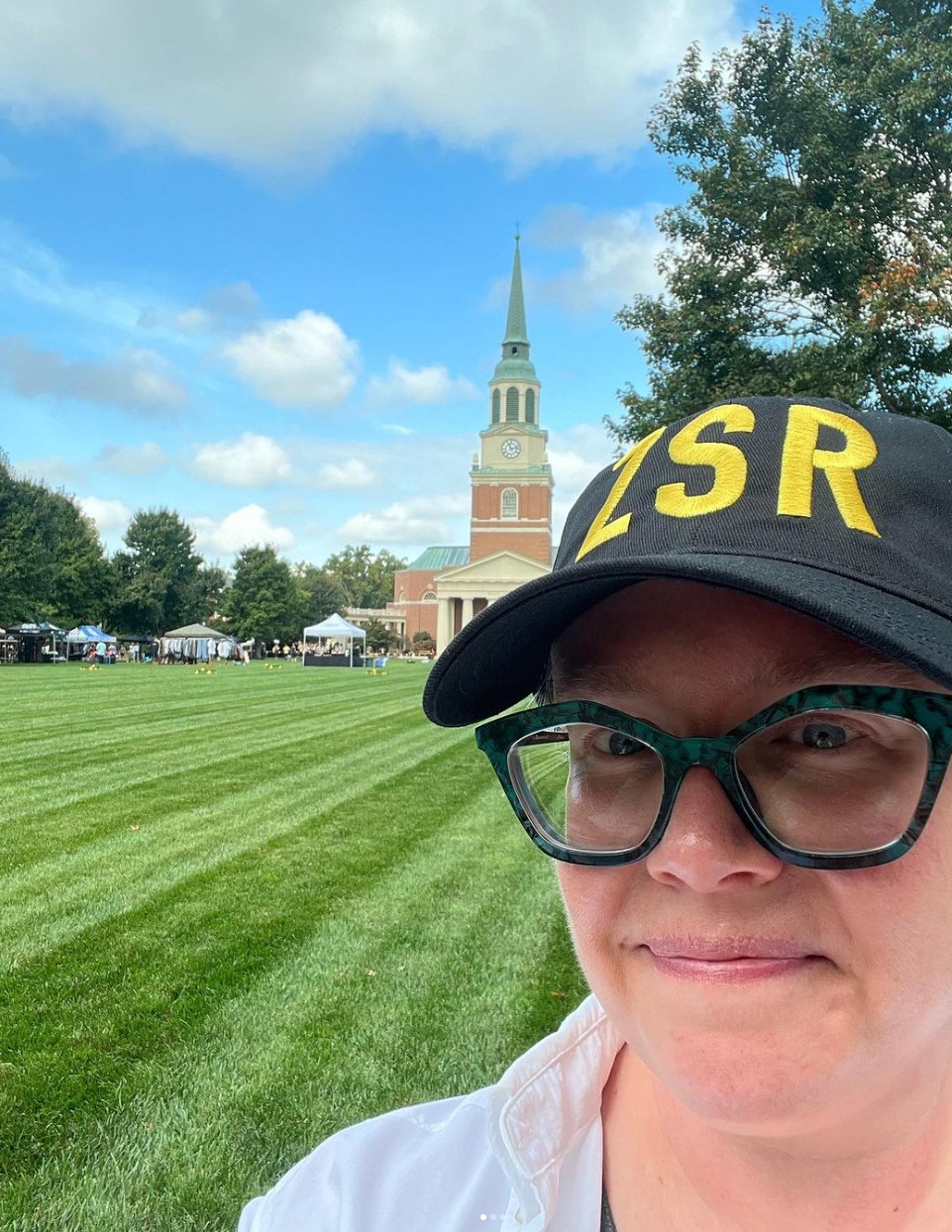
Image Credits
Greg Keener

